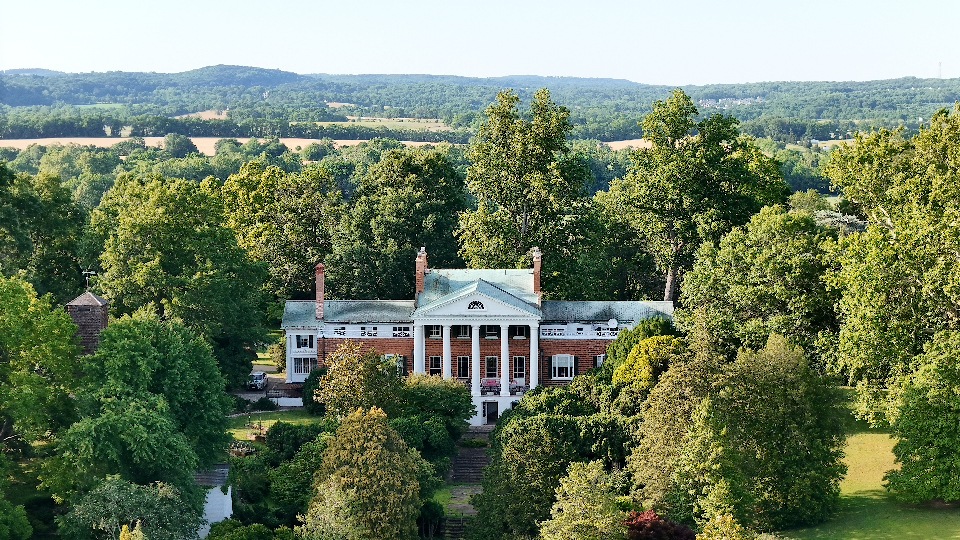The fifth U.S. president, James Monroe, may have written the document he is most famous for in the dining room of a Northern Virginia home. But it’s unclear if that’s compelling enough for policymakers to turn the property into a state park.
The Virginia state senate has voted to put aside a proposal to acquire the 1,200-acre Oak Hill estate in Loudoun County, a property a developer reportedly has offered $55 million to buy. A historic advocacy group behind the effort, The Conservation Fund, said the family that has owned the property since 1948 prefers the state to have it. The fund has raised enough money to buy the home and land, with the intent of turning it over to the state. If he wants to, the fund said, Gov. Glenn Youngkin could revive the proposal with a budget amendment in March.
“While we're incredibly disappointed the [senate] didn't fully recognize the potential of the incredible gift that's being offered in Oak Hill, we are continuing to work with the Youngkin administration … to bring what would be a truly incredible state park to fruition. The time is right for Virginia to permanently honor President James Monroe by protecting Oak Hill,” The Conservation Fund’s Heather Richards said in a statement.
The issue of whether local or state governments should acquire houses of historical interest to keep them from being demolished is common across the United States. For example, last summer the city of San Jose, California wrestled with whether to make the 1920s home of a Japanese-American civic leader part of a public park within a new housing development.
The Monroe Doctrine stated U.S. opposition to European interference in the Americas. It was written at Oak Hill in 1823, during the president’s second term, according to the National Park Service. He inherited the Oak Hill property in 1808 and built his home there between 1820 and 1823. The location was conveniently just 40 miles west of Washington, D.C. The roughly 9,000-square-foot brick house has 14 fireplaces and seven bathrooms, according to Loudoun County records.
The money the Conservation Fund has raised would not affect the state’s budget, Josh Lynch, a spokesperson for the group, said in an email.
“All of the funding necessary to purchase, open and operate the park will come from local, private, federal and already dedicated state sources,” he said.
However, senators appeared unconvinced whether now is the right time to acquire the property. Legislative staff prepared a brief analysis that said $1.3 million would be needed annually to support the park.
Sen. Louise Lucas, who chairs the Senate Finance Committee and requested to shelve the park acquisition last week, declined to comment.
From the Homes.com blog: Is Virginia a good place to live? Benefits and drawbacks
Delegate Alfonso Lopez of Loudoun County urged the committee earlier in the week to back the state park concept, telling members about the Monroe property that “history is dripping off the place.”
“It has Revolutionary War history, prehistoric history, enslaved Americans history … The Monroe Doctrine was written in the dining room,” he said.
Gov. Youngkin has 30 days starting March 1 to offer an amendment to the draft state budget reviving the state park proposal, Lynch said. If he does, the Virginia General Assembly would consider the idea again in April.

